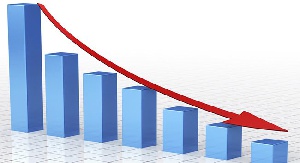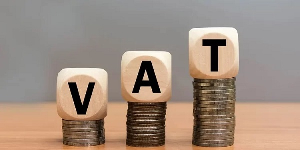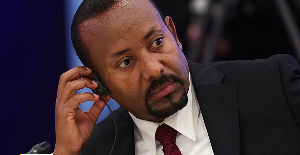Economic activities in Ghana remain weak as businesses continue to grapple with numerous challenges.
According to the latest report of the Business Barometer issued by the Association of Ghana Industries (AGI), business confidence dropped from 97.29 points in the fourth quarters, reflecting a dip in confidence.
The report revealed that 96 percent of businesses in Ghana found the cost of electricity unduly high and its supply woefully inadequate.
Chief Executive Officers of organisations who were captured in the report said high cost of electricity and inadequate power supply were two topmost challenges that bedeviled their operations in the last quarter of 2015.
These had a scathing effect on the operations of businesses across the length and breadth of the country.
Business Finder has however found that poor power supply run throughout all four quarters of the year followed closely by exchange rate volatility, multiplicity of taxes and poor access to credit.
The report further revealed that small and medium sized businesses were affected first by high cost of electricity and secondly poor supply of power.
The Business Barometer expresses the state of the business confidence as an index, with 100 as the base index and is calculated out of “current” business mood and “expectations” for the future.
Large scale businesses were the hardest hit by the unreliable supply of power followed by the high cost of electricity, the report said.
In terms of business performance, the paper found out that the 60 per cent of CEOs whose businesses performed poorly in the third quarter of 2015 increased to 76 per cent in the fourth quarter of the year, reflecting the deterioration in business confidence.
It is interesting to note that AGI’s survey for the first and second quarters of 2015 revealed that 82 and 80 per cent respectively of businesses performed poorly.
This means business prospects worsened within that period, stabilized slightly as confidence saw a marginal rise then dipped again in quarter three.
Business Finder reported last week that some businesses were still laying off staff through restructuring exercises.
The paper gathered that the increases and introduction of new taxes, utility tariff hikes had compelled most firms to re-strategize in order to cut costs and remain in business.
Commenting on the trends, Policy Research Officer of the AGI, John Defor told this paper the responses received from business operators was a reflection of the declining business confidence.
According to him, some factors that accounted for the subdued confidence included the utility tariff hikes announced in December 2015 as well as forex regulations issued by the Bank of Ghana (BoG) ostensibly to arrest the falling cedi.
Mr Defor explained that it was normal for businesses to restructure their operations and make do with what they think is extremely necessary.
“Generally when the economy gets tougher for people, one of the ways out is to re-strategise and they look at areas they can plug out,” Mr Defor added.
With inflation hitting 19 per cent and the local currency at over ?4.0 per dollar, economic activities are not likely to pick up anytime soon.
This means business confidence is bound to plummet some more as businesses continue to pay more for fuel, electricity, water and other services.
The BoG’s Monetary Policy Committee at its first sitting this year noted that “there are risks to the growth outlook. These include, continuing tightness in the monetary and fiscal policy stance, weak consumer confidence, falling commodity prices and a slack in global growth.”
Business News of Thursday, 18 February 2016
Source: The Finder













